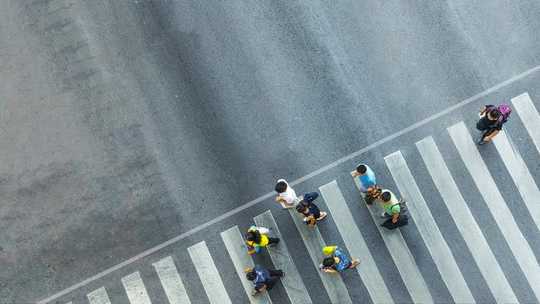Before lockdown, our lives were defined by speed. Rushing around, living life at rocket pace was the norm. Keeping up with work responsibilities, social obligations and the latest tech or fashion trends was a neverending feat. Only a privileged few could afford to slow down.
But in lockdown, the pace of life slowed dramatically overnight for everyone. People literally stopped running to work. The office, gyms, pubs, clubs and restaurants closed. Global travel shut down. Staying at home became the new normal. People began playing board games and puzzles, gardening, baking and other analogue pursuits with their new found time.
Now that we are gradually emerging from lockdown, one tentative step at a time, is it possible to hold on to the benefits of being slowed down, and not go back to our old rushed way of living? Our research shows that in order to experience the benefits of slowing down, people must decelerate in three ways.
1. Slowing down your body
We call this embodied deceleration – when the body itself slows down. For example, when people walk or cycle as their primary forms of transportation, rather than taking the tube, train or bus.
During lockdown, we have all had to stay close to our homes, and public transport has been for essential workers only. As we come out of lockdown, the city of London, for example, is expecting more people to continue walking and cycling rather than taking faster forms of transport, and is altering the built environment of the city to facilitate this.
If possible, try to continue these slower forms of moving, as they do not only provide physical benefits. Moving at a slower pace allows for feeling a stronger connection between body and mind, which can gradually open up mental space for deep reflection. It is about getting into a mindset in which you have time to think, not just react.
2. Controlling your technology use
You don’t need to give up technology entirely. This is about having control over technology, and also communicating more face-to-face.
During lockdown, we have all relied on technology to a great extent – to do our work remotely as well as keep in touch with our loved ones. Yet technology has been used to rekindle vibrant and meaningful connections to those who are important to us. From Zoom happy hours with long lost friends to watching movies with a partner, technology has been used to reinforce close connections.
Try to continue these practices as you emerge from lockdown. For example, keep up your involvement with the WhatsApp neighbourhood group, which checks in on vulnerable community members. This keeps you grounded in the local, and continues your use of technology to facilitate close, meaningful and long lasting, rather than superficial and short, relations with others.
3. Limiting your activities
This is engaging in only a few activities per day and – crucially – reducing the amount of choices you make about buying things. During lockdown, when we were all confined to our homes, the only activities to be engaged in and choices to be made were where to set up our home office, what to eat for each meal, and where and when to take a walk. Now, as we begin to see others outside of our household, as restaurants and bars begin to open for takeaway and shops start to reopen, the amount of activities and things we can consume starts to rise.
Try to remember the feeling of making your own food, and sharing it with your household, rather than running back to eating many meals out and on the go. As you emerge from lockdown, try to maintain practices like stopping work to eat your lunch in the middle of the day, and take tea breaks, preferably with others and outdoors when you can. There is much value to be gained from having the rhythm of your daily life be one which you can savour.
 Baking your own bread has been a lockdown trend. Shutterstock
Baking your own bread has been a lockdown trend. Shutterstock
In general, all three dimensions of slowing down speak to simplicity, authenticity and less materialism. Although many people desired these in their life pre-lockdown, it was hard to achieve them, as we felt there was no getting off the sped-up rollercoaster.
Now, when we have all experienced the benefits of living a life which emphasises these values – the amount of things purchased during lockdown was quite small, and many people decluttered their homes – there is an incentive to hold on to this rather than rush back to our old, accelerated life.
We are seeing societal changes which facilitate maintaining this new, slowed down rhythm. New Zealand is talking about moving to a four-day work week, for example, and Twitter says employees can continue to work from home indefinitely.
The current moment offers a unique opportunity to push back against the cult of speed and to continue life in this slower, more meaningful form.![]()
About The Author
Giana M Eckhardt, Professor of Marketing, Royal Holloway and Katharina C. Husemann, Senior Lecturer in Marketing, Royal Holloway
This article is republished from The Conversation under a Creative Commons license. Read the original article.

Related Books:
Atomic Habits: An Easy & Proven Way to Build Good Habits & Break Bad Ones
by James Clear
Atomic Habits provides practical advice for developing good habits and breaking bad ones, based on scientific research on behavior change.
Click for more info or to order
The Four Tendencies: The Indispensable Personality Profiles That Reveal How to Make Your Life Better (and Other People's Lives Better, Too)
by Gretchen Rubin
The Four Tendencies identifies four personality types and explains how understanding your own tendencies can help you improve your relationships, work habits, and overall happiness.
Click for more info or to order
Think Again: The Power of Knowing What You Don't Know
by Adam Grant
Think Again explores how people can change their minds and attitudes, and offers strategies for improving critical thinking and decision making.
Click for more info or to order
The Body Keeps the Score: Brain, Mind, and Body in the Healing of Trauma
by Bessel van der Kolk
The Body Keeps the Score discusses the connection between trauma and physical health, and offers insights into how trauma can be treated and healed.
Click for more info or to order
The Psychology of Money: Timeless lessons on wealth, greed, and happiness
by Morgan Housel
The Psychology of Money examines the ways in which our attitudes and behaviors around money can shape our financial success and overall well-being.






















